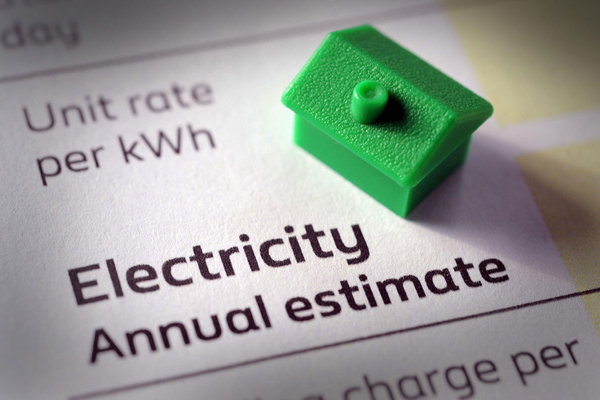How rising energy costs are impacting social landlords
Increases in the price of gas and electricity are affecting how social landlords run their businesses. An Inside Housing survey, in association with Inenco, looks at how they are dealing with the crisis
In association with:

The whole country is worried about rising energy prices right now. Many social housing tenants will be worrying if they can afford to put on their heating. Price hikes for gas and electricity are also concerning for organisations with bills to pay to heat and light their offices, including social landlords. This is the subject of a survey by Inside Housing, in association with Inenco, a firm that supports organisations with effective energy procurement and management.
The results show that the issue is one of real concern to many in the sector. The survey has garnered responses from 105 people working in social housing, with the vast majority of them (78%) employed by a housing association. Around 50% are in service manager or head of service roles, although board level leaders are represented as well.
Strikingly, half of all respondents say they are concerned “to a large extent” by the impact of rising energy costs on their organisation. Another 36% say they are concerned “to some extent”.
A potential double whammy for residents
It is likely that some of the worries relate to what an increase in social housing organisations’ energy costs in turn means for residents. In some instances, costs will have to be passed on – to families and individuals who are already managing steep increases in their cost of living, including their own rising energy bills.
The survey results suggest this is an issue already beginning to bite. Just over a quarter of respondents tell us their that organisation has increased rent or service charges in direct response to the energy prices it is having to pay. Another 13% say they expect to have to make such increases imminently, which we defined as within the next six months, and almost 30% believe such rises will be necessary in six months to a year from now.
Dan Pardesi, head of social housing at Inenco, says these answers chime with conversations he has been having.
“We’ve received feedback that service charges are going to be going up related to energy [cost increases] and [increases] in other categories as well. If we take gardening as another example which might be included in a service charge, people have to drive around in vans and put petrol in lawnmowers, and oil prices as they are and petrol prices as they are mean increased costs.
“The interesting part is going to be what that does to service charge debt levels and how organisations actually recover that. And this comes back to making sure that those increases are managed in the most effective way, so that they’re as limited as possible.”
Change supplier or procurement strategy?
Some survey responses give pause for thought in this respect. When asked if their organisation has forecast how much their energy bill will increase over the coming year, 17% of respondents say “no”. And 42% say that rising prices have not yet led to plans to change the way the organisation is procuring its energy, or its energy trading strategy.
“But supplier margin makes up between 2% and 5% of the overall delivered cost of energy, so just changing the supplier doesn’t necessarily mean that you’re going to get a better price,” Mr Pardesi explains.
“About 60-65% of the bill at the moment is made up of commodity cost, so the cost of energy on the commodities market. Having a more effective procurement and trading strategy to manage that commodity element is 10 to 15 times more effective than just changing energy supplier.
“Implementing a trading strategy to manage the commodity element of the bill in a more effective way gives you both budget certainty and opportunity to drive value from the commodities markets,” he adds.
There are other factors at play for social housing leaders making decisions about energy use in their own organisations – not least the net zero targets.
Some 40% of our respondents say that their organisation is already procuring some energy from renewable sources, with around 23% saying that although their employer does not currently use renewable energy, they expect that to change in the coming months.
Meanwhile, almost half say there is communication to staff about the importance of energy efficiency, and the same again say employees are being offered practical advice on how to reduce energy consumption.
Many report that the likes of energy-saving and movement-activated light bulbs are being installed, ways to reduce energy-intensive hotspots within the organisation are being explored and home-working introduced in response to the early phase of the pandemic is being maintained so as to reduce dependence on office space.
Chris Ellison, executive director of operations at B3 Living, says: “We’re already some way down the path of reducing our carbon footprint, including use of energy and re-procuring fixed-term, renewable suppliers.”
In numbers
26%
Organisations that have increased rent or service charges in response to rising energy prices
40%
Organisations that are already procuring energy from renewable sources
35%
Respondents who are implementing previously planned carbon reduction measures more swiftly due to rising prices
Terminating Russian connections
At some organisations, it seems that the current energy crisis is speeding up plans for action. Almost 35% of those who completed our survey say their organisation is implementing previously planned carbon reduction measures more swiftly due to rising energy prices.
Given that our survey ran throughout the month of March, there was one other key issue dominating responses on the use of energy: Russia’s invasion of Ukraine.
On 28 March, the government published a procurement policy notice offering advice to public bodies on how to cut ties with companies backed by Russia and Belarus.
Energy will be a key part of this: Gazprom, the Russian-majority-owned supplier, has been a provider for many organisations in the UK.
But even before this document was published, our respondents were saying that such considerations were high on their agendas.
“When we re-procure or can exit the current contract, the most important factor will be that the energy is not from a Russian company, along with price,” one director of finance at a housing association tells us.
It is a theme echoed by a chief financial officer at a large housing association, who says the organisation is “terminating our [contracts with] Russian energy suppliers”.
While there may be multiple complexities in how social landlords are dealing with rising energy prices – and multiple worries about how to protect residents from the impact of their own bill rises as well as those of the organisation – this, at least, is one area on which there is absolute clarity and no debate.












